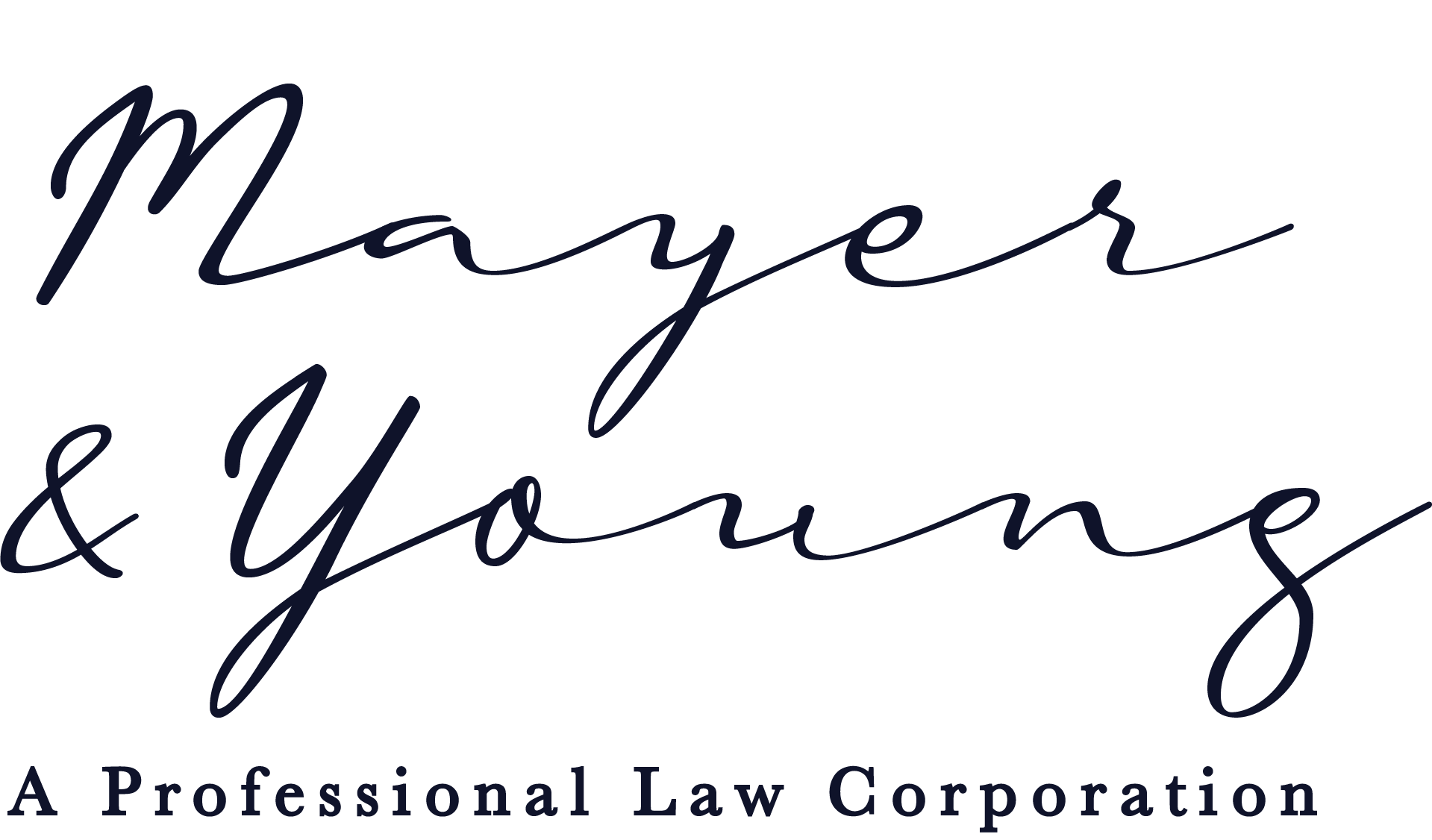Well-informed and accessible estate planners
What are Wills and Trusts?
The foundation of a complete estate plan is the legal document known as a will. Without a will, state law will dictate how your property is distributed upon your passing. Additionally, a will can be used to create a safeguard plan for your children. Many people do not realize that it is not enough to simply ask someone to act as the guardian of their children should something happen to them. At a minimum, parents should have a will drafted to name guardians of their minor children. There are two main types of wills drafted by the attorneys at Mayer & Young, PC: the stand-alone will and a pour-over will.
Stand-Alone Will
A stand-alone will does not require an accompanying trust and is the only document stating your wishes for the disposition of your assets. In cases where a stand-alone will is used, the entire estate must go through probate, similar to passing without a will or intestate. The benefit of having a stand-alone will is that you are able to name your beneficiaries, along with your executor and guardians for any minor children.
Having a stand-alone will still assists beneficiaries because you have already made the important decisions regarding the administration of your estate.
Pour-Over Will
If you elect to have the attorneys at Mayer & Young, PC create a complete estate plan for you, a pour-over will is included. Although very similar to a stand-alone will, a pour-over will is used with a corresponding revocable living trust. This will is designed to name the revocable living trust as the beneficiary of the estate and also captures any assets that were not properly placed in the trust.
Trust
A trust is essentially an artificial entity that holds on to, or becomes the owner of, your assets. As the creator of the trust, you are able to decide who manages these assets by naming a trustee. Most people choose to designate themselves as the trustee during their lifetime and name a successor trustee for after their death. Your trust not only holds your assets, but also names the beneficiaries of your estate and lists the manner in which they will inherit from you.
There are many reasons why a trust is considered an essential aspect of any estate plan. First and foremost, the costly and time consuming process known as probate can be avoided with the creation of a trust. A trust can also be used to protect assets from estate taxation or to exempt specific assets for purposes of qualification for public benefits such as Medi-Cal. You can also include provisions in a trust that control money left to minors, care for the special needs of a disabled beneficiary, and limit the ability of beneficiaries to contest the distribution of your assets.
There are many different types of trusts and the attorneys at Mayer & Young, PC can explain to you which trust will best meet your individual needs. Call us today at (916) 631-1996 to schedule your reduced fee consultation.


